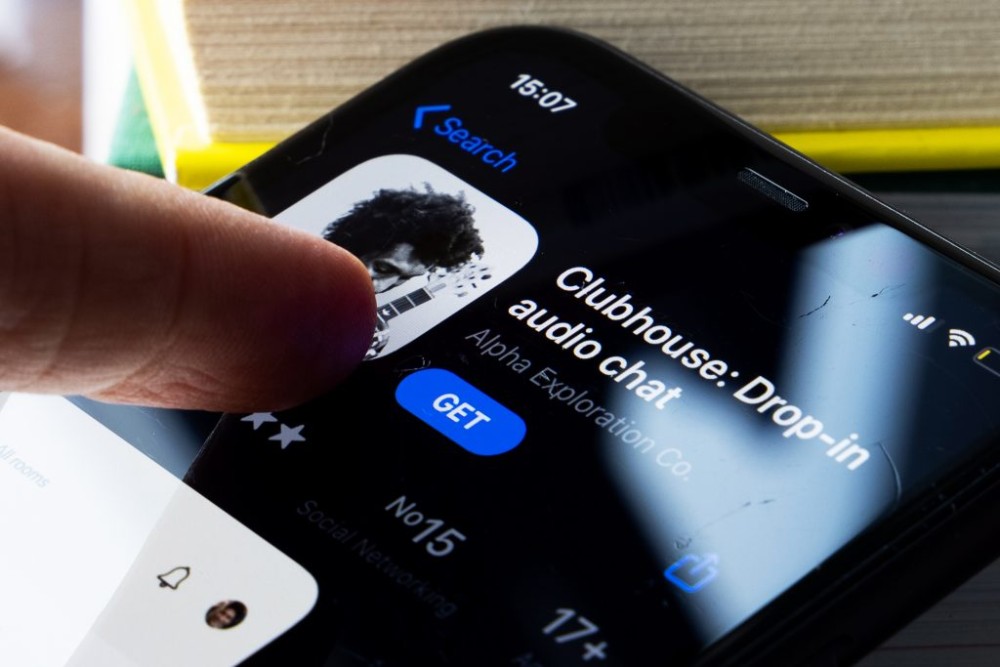Conversation is back in a big way thanks to unicorn start-up Clubhouse. Lena Xiao, Mayao, Sophia Hong and Caroline Issa – users of the live audio platform to varying degrees – talk to Zaneta Cheng about what makes the app so popular and whether substance has a place in our modern culture of split-second sensationalism

It’s such a phenomenon that Bill Gates downloaded it onto an iPhone despite being a loyal Android user. Elon Musk, who recently broke the app’s limit of 5,000 listeners, has invited Russian leader Vladimir Putin to join him in a conversation.
Currently available only iOS, Clubhouse is an invite-only social-media app that facilitates live conversation. It’s made waves for bringing its now two million users into “rooms” with the likes of Musk, Gates and Mark Zuckerburg as well as Snoop Dogg, Drake and many more VIPs and celebrities. What started as a hot topic among techies in Silicon Valley when it was launched in May 2020 has become a US$1 billion unicorn start-up, securing a US$100 million investment round in late January 2021.
See also: Take a look at Drake’s outrageous watch collection
Musk’s conversation lasted 90 minutes. Ai Weiwei has been heard chatting to students about his tolerance for alcohol in a room called “If Ai Weiwei is not sleeping, neither will we.” Some conversations can reach up to 16 hours in length. Once I fell asleep while co-hosting a panel and in the morning woke up to an entirely different panel of moderators with an audience of 300.
Clubhouse is a far cry from the endless zombie scroll of other social-media platforms. What is it about audio and its ability to connect users through live conversation that has people across the globe willing to pay up to €65 to secure an invitation?

To Los Angeles-based beauty entrepreneur Lena Xiao, an early user and founding member of the app’s Inside Asia club, it’s the quality of conversation that’s most compelling. “There was a debate between Republicans and Democrats, and it was the most thoughtful bipartisan debate I’d heard in a really long time in America,” she says, “at least in June, when it was very divided, and I was surprised at how civil and engaging that conversation was. I don’t think anybody changed their views, but it was such a civil discourse.”
And what discourse there has been. Alongside rooms on astrology and Shark Tank hosts giving feedback on business pitches, there was a week when Clubhouse slipped through a crack in China’s Great Firewall. What is now hailed as a once-in-a-lifetime occurrence saw a 16-hour conversation in a Mandarin-language room called “Is there a concentration camp in Xinjiang?” where Uyghurs were appointed moderator positions to share their stories while thousands from mainland China and around the world listened and shared their views. A few days later Clubhouse was made permanently unavailable to Internet users in China.
Hong Kong social-media personality and entertainer Mayao became an avid user in mid-February, when Clubhouse saw a surge in interest from East Asia. “It’s a great platform to learn on because you’re able to share your thoughts in depth,” he says. “The last few times I hosted a beauty room, a lot of people messaged me afterward and a friend told me that his wife started taking notes with pen and paper during the conversation.”
“There’s zero filtering so when you’re able to be really sincere and authentic, people hear it in your voice.”
Sophia Hong
Sophia Hong, founder of beauty brand Mask Moments and founding member of The Skin Enthusiast club, attributes Clubhouse’s popularity to its proclivity for substance. “You get to explain your thoughts at a deeper level, which is more suitable for my personality,” she says. “On other platforms you only have three seconds, and I wouldn’t stand out because it forces people to make quick judgements. But in this space, one person gets the mic at a time. People are forced to listen and when something has value, people see it and the app actually rewards that. There’s zero filtering so when you’re able to be really sincere and authentic, people hear it in your voice.”
Xiao agrees: “I think that Clubhouse is still very valuable in that unlike Twitter or Instagram, there’s an opportunity to clarify. Seven percent of communication is the actual words. The rest of it is tone, body language and context, and I think the good thing about Clubhouse, because it’s live, is that it offers the opportunity for clarification over another social platform where maybe you post something and 18 hours later, it’s completely taken on a life of its own.”
The app, with its unending variety of room topics, also gives users a chance to show dimension to their personalities where other platforms might not. Xiao, who balances giving expert skincare advice with sharing her interest in Asia, is also an active participant on the singing competition Clubhouse Idol, which has led to increased awareness of her brand.
“Clubhouse grew my Instagram account faster than it took for me to grow from the ground up.”
Lena Xiao
“Clubhouse gave me more visibility,” she says. “Listeners seem to find value in my stories and approach the brand through my personality whereas on Instagram Mask Moments is just a brand. Clubhouse grew my Instagram account faster than it took for me to grow from the ground up.”
London-based fashion entrepreneur Caroline Issa joined the app in December as part of her Creatives for Lebanon initiative. While she has continued to listen in on fashion discussions she also joined a recent talk hosted by Philip Lim and Bryanboy about the Stop Asian Hate campaign. “It was really well attended, and really honest, open and very interesting,” she says. She also regularly tunes in to Textile Tuesday, and listens in on Mandarin-language rooms to brush up on her skills.
While Issa is more active as a listener than a speaker, she’s mindful of the potential disadvantages of the app. “There’s freedom in speaking one’s mind truthfully and being transparent if discussions are moderated in a safe and responsible way,” she says. “The flip side of that is that there can be many rooms that are completely un-moderated and could be detrimental. And there’s no real way, at this moment, of regulating that.”
“There’s freedom in speaking one’s mind truthfully and being transparent if discussions are moderated in a safe and responsible way,”
Caroline Issa
Hong believes that moderation is key to managing a conversation. “Clubhouse is a very creator-driven platform, in that moderators have a lot of power. They can dictate and determine the culture and tone of every single room and if the moderator is such that they do not allow for other opinions, it definitely becomes an echo chamber,” she says. “A good moderator, and this is just my opinion, needs to be aware of all the issues, what the intentions are and be able to read the room.”
In Xiao’s opinion, it comes down to civility. “For myself, I think the value of conversation is not necessarily persuasion but being able to talk about topics and disagree in a civil way and to not moralise people’s opinions and views, and draw conclusions about ‘does this make someone a bad person?’ because of what they believe.
“Unlike other platforms, Clubhouse is live and ephemeral, and there’s the opportunity to clarify, which is helpful.”
Lena Xiao
“Regarding conversations where there may be lots of strong opinions – similar to IRL conversations – I think setting the intention that we’re exploring together from a safe and open place of curiosity, empathy and seeking to understand is important. Unlike other platforms, Clubhouse is live and ephemeral, and there’s the opportunity to clarify, which is helpful. I’m also always a fan of nonviolent communication techniques.”
As to whether Xiao thinks Clubhouse is a passing phase, “My short answer is I don’t think so. I think people will say that the pandemic accelerated its growth, and that may be true, but I feel that social audio was inevitable,” she explains. “If you look at Asia, we’ve had voice messages for a long time, which in many ways deliver a context and a richness that text and photos do not. I think it makes sense from a perspective of the evolution of social media.”
See also: The rise of Clubhouse, the invite-only, drop-in audio chat platform






